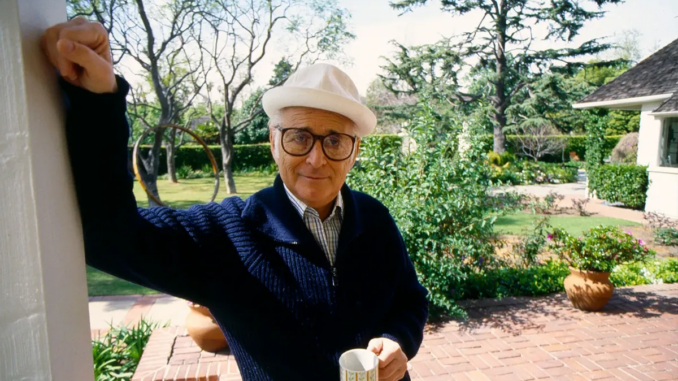
Norman Lear was a true Hollywood liberal, for better and for worse
The legendary producer’s impact and influence is undeniable, but his history as an advocate isn’t without fault.
One of the few occasions I spoke to Norman Lear was in 2017, while we were waiting for an Outfest panel on “One Day at a Time” that I moderated. The Netflix remake of Lear’s ’70s classic about a single mother raising two kids while caring for her own aging mother had just been renewed. Lear, along with its co-creators Gloria Calderón Kellett and Mike Royce, were in a wonderful mood.
We were discussing other great TV comedies that transformed the medium, and Lear spoke with special fondness about “The Mary Tyler Moore Show,” a legendary comedy he wasn’t involved in creating. I had just indulged in a rewatch and marveled at how rare and timeless its writing was.
Everything holds up, I said in agreement, adding “Come to think of it, even the fashion is on point.”
At this, Lear turned his full attention to me, and deadpanned, “Fashion? That’s what you took away from watching that show?” He was joking. I think. I recall not being too sure at that moment.
Lear, who died Tuesday at the age of 101, altered the American sitcom from the stuff of ephemeral escapism to a platform that both entertained and illuminated the human condition. He was as serious about his vision for America as he was funny, and always earnest in communicating his progressive values.
This was a man who believed in the half-hour comedy’s power to show America’s people in their complexity, struggle and conflict – not simply rich, white suburbanites but working- and middle-class families like the Bunkers in “All in the Family,” the Evanses of “Good Times” and “The Jeffersons.”
His life’s work revolves around providing windows into the homes and lives of families who lived and looked like the people watching his shows. And here I was, admiring another groundbreaking comedy for its curtains.

Lear is one of the few Hollywood figures whose impact on the medium has no peer. Many of his most-acclaimed series aired in the 1970s, like the aforementioned titles, “Sanford and Son” and “Maude,” which, like “The Jeffersons,” was a spinoff of “All in the Family.” But that broadcast comedy and so many others afterward from “The Cosby Show” and Fox’s “Roc” on through the excellent “Superstore,” are Lear’s descendants.
“The reason that his shows were so good, among many, is that everyone had a leg to stand on,” said Jim Reynolds, creator of CBS’ long-running comedy “The Neighborhood,” in a 2018 TCA press conference. “Everyone had their own logic that you could follow.”
And each in their way aligned with Lear’s progressive vision for America. Lear’s legacy is such that he could fully embrace his identity as a liberal long after the right-wing mediasphere transformed the term into a pejorative.
He communicates his progressive values through his work and advocacy, prominently realized through his founding of People for the American Way, through which he dedicated himself to counteracting the Christian Evangelical right-wing’s sway over on American politics.
More directly, he communicates his thoughts and concerns about America nearly up to his death through short videos posted on Instagram, many of them filmed while holding his morning cup of coffee.
“I’m thinking about two little words that we don’t think about often enough, that we don’t pay enough attention to: ‘over’ and ‘next,” Lear offered as he turned 101 in July. “When something is over, it is over. And we have the joy and privilege of getting on to the next. And if there were a hammock in the middle between those two words, it would be the best way I know of identifying living in the moment. That hammock between over and next. I’m living in that moment now with all of you and bless all of you and our America.”
But at times in his career, he played out the more negative meaning of the Hollywood liberal – as in someone who profits from gesturing toward equality and representation without always walking the walk.
The behind-the-scenes stories of how “Good Times” was made and the near-total erasure of co-creator Eric Monte is perhaps the most significant instance on record in which Lear’s reaction comports with that of a business-minded Hollywood producer as opposed to an advocate for marginalized voices.
Both the L.A. Times and NPR spoke with Monte in 2006 when he was living in a Salvation Army shelter, all but forgotten by the press and entertainment industry establishment.
In the ’70s Monte was one of very few Black TV writers experiencing success in Hollywood, first working with Lear when he wrote an episode of “All in the Family” before going on to co-create “Good Times” with Mike Evans, who went on to play Lionel Jefferson.